在开始编写python脚本之前,我们需要准备以下环境:
- python环境:确保系统已经安装了python 3.x。如果没有,可以从python官方网站
https://www.python.org下载并安装。 - paramiko库:这是一个用于ssh连接的python库。可以使用以下命令安装:
pip install paramiko

- 华为交换机:本文假设你已经有一台华为交换机,并且可以通过ssh进行访问。
- 交换机配置文件的存储位置:一个可以存储备份文件的目录。
备份华为交换机配置文件的基本步骤如下:
- 通过ssh连接到交换机。
- 执行相应的命令获取配置文件。
- 将配置文件保存到本地。
编写python脚本
接下来,我们将详细编写一个python脚本来实现上述步骤。
导入必要的库
首先,我们需要导入必要的python库:
import paramiko import os from datetime import datetime
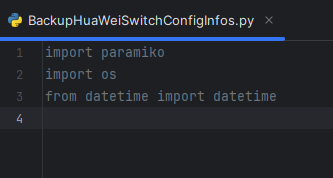
配置连接信息
我们需要配置ssh连接的信息,包括交换机的ip地址、用户名和密码等:
hostname = '交换机的ip地址' username = '用户名' password = '密码' port = 22 # 默认ssh端口
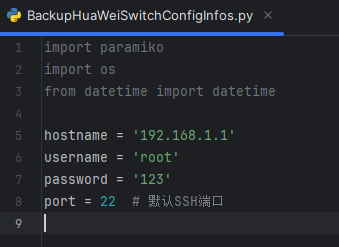
创建ssh连接
使用paramiko库创建ssh连接:
def create_ssh_client(hostname, port, username, password):
client = paramiko.sshclient()
client.set_missing_host_key_policy(paramiko.autoaddpolicy())
client.connect(hostname, port, username, password)
return client
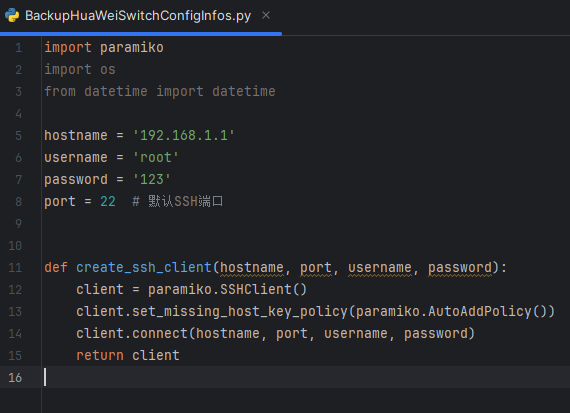
获取交换机配置
连接成功后,我们需要执行交换机的命令来获取配置文件。华为交换机常用的命令是display current-configuration。
def get_switch_configuration(client):
stdin, stdout, stderr = client.exec_command('display current-configuration')
return stdout.read().decode('utf-8')
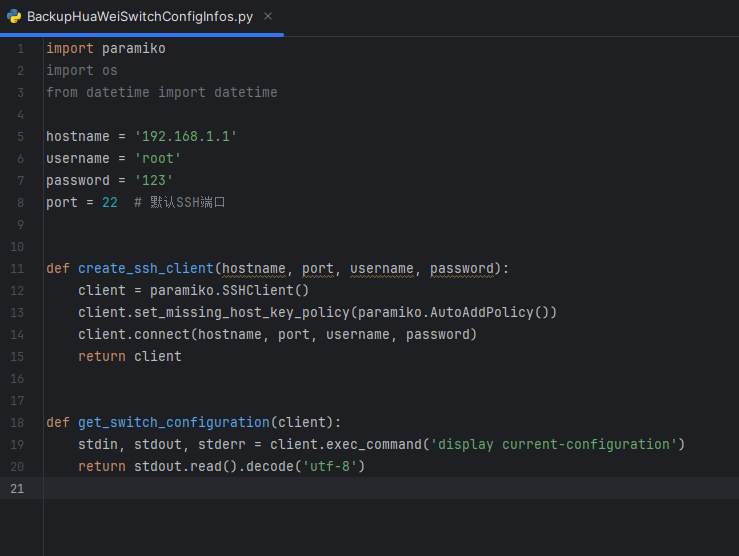
保存配置文件
我们需要将获取到的配置文件保存到本地。为了便于管理,通常会按照日期命名备份文件。
def save_configuration(config, backup_dir):
if not os.path.exists(backup_dir):
os.makedirs(backup_dir)
filename = os.path.join(backup_dir, f'config_backup_{datetime.now().strftime("%y%m%d%h%m%s")}.txt')
with open(filename, 'w') as file:
file.write(config)
print(f'configuration saved to {filename}')
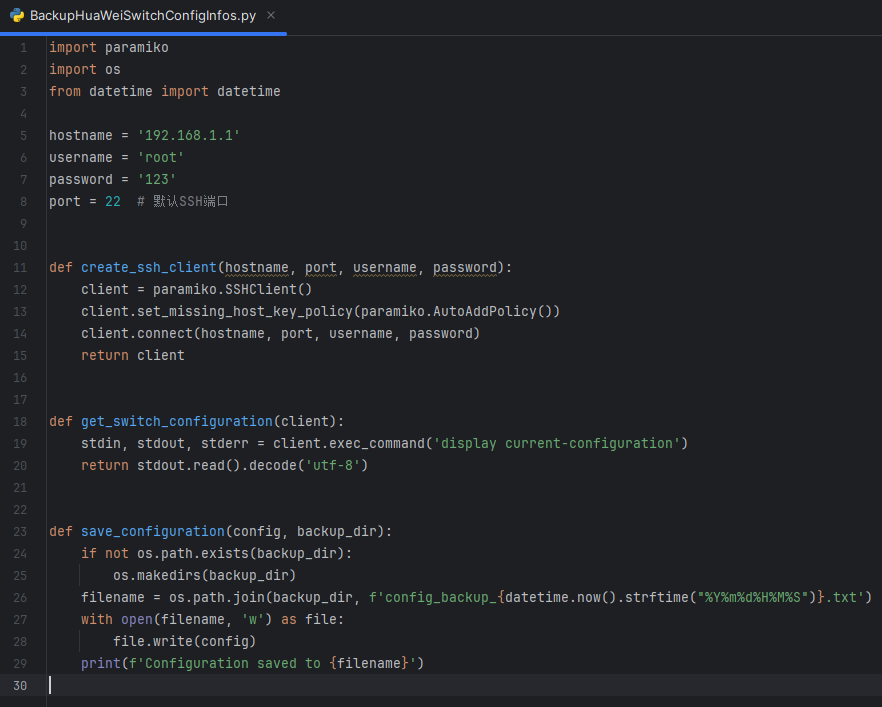
完整的python脚本
将上述步骤整合成一个完整的python脚本:
import paramiko
import os
from datetime import datetime
# 配置信息
hostname = '交换机的ip地址'
username = '用户名'
password = '密码'
port = 22 # 默认ssh端口
backup_dir = '备份文件存储目录'
# 创建ssh连接
def create_ssh_client(hostname, port, username, password):
client = paramiko.sshclient()
client.set_missing_host_key_policy(paramiko.autoaddpolicy())
client.connect(hostname, port, username, password)
return client
# 获取交换机配置
def get_switch_configuration(client):
stdin, stdout, stderr = client.exec_command('display current-configuration')
return stdout.read().decode('utf-8')
# 保存配置文件
def save_configuration(config, backup_dir):
if not os.path.exists(backup_dir):
os.makedirs(backup_dir)
filename = os.path.join(backup_dir, f'config_backup_{datetime.now().strftime("%y%m%d%h%m%s")}.txt')
with open(filename, 'w') as file:
file.write(config)
print(f'configuration saved to {filename}')
# 主函数
def main():
try:
client = create_ssh_client(hostname, port, username, password)
config = get_switch_configuration(client)
save_configuration(config, backup_dir)
except exception as e:
print(f'an error occurred: {e}')
finally:
client.close()
if __name__ == "__main__":
main()
脚本的执行与验证
- 修改脚本配置:在脚本中填入实际的交换机ip地址、用户名、密码和备份文件存储目录。
- 运行脚本:在终端或命令提示符中运行脚本:
python backup_huawei_switch.py
- 验证结果:检查备份目录,确认配置文件是否正确保存。
脚本的优化与扩展
- 增加日志记录:可以添加日志功能,记录每次备份的详细信息。
import logging
logging.basicconfig(filename='backup.log', level=logging.info, format='%(asctime)s - %(message)s')
def save_configuration(config, backup_dir):
if not os.path.exists(backup_dir):
os.makedirs(backup_dir)
filename = os.path.join(backup_dir, f'config_backup_{datetime.now().strftime("%y%m%d%h%m%s")}.txt')
with open(filename, 'w') as file:
file.write(config)
logging.info(f'configuration saved to {filename}')
print(f'configuration saved to {filename}')
- 增加错误处理:增强错误处理,确保在连接失败或命令执行失败时能够适当处理。
def main():
try:
client = create_ssh_client(hostname, port, username, password)
config = get_switch_configuration(client)
save_configuration(config, backup_dir)
except paramiko.authenticationexception:
print('authentication failed, please verify your credentials')
except paramiko.sshexception as sshexception:
print(f'unable to establish ssh connection: {sshexception}')
except exception as e:
print(f'an error occurred: {e}')
finally:
client.close()
- 定时任务:可以将脚本设置为定时任务,定期自动备份配置文件。
- 在linux上,可以使用
cron定时任务:
crontab -e
添加如下任务,每天凌晨2点执行备份:
0 2 * * * /usr/bin/python3 /path/to/backup_huawei_switch.py
在windows上,可以使用任务计划程序(task scheduler)。
到此这篇关于使用python脚本备份华为交换机的配置信息的文章就介绍到这了,更多相关python备份交换机配置信息内容请搜索代码网以前的文章或继续浏览下面的相关文章希望大家以后多多支持代码网!




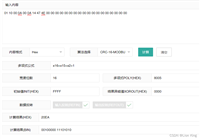

发表评论